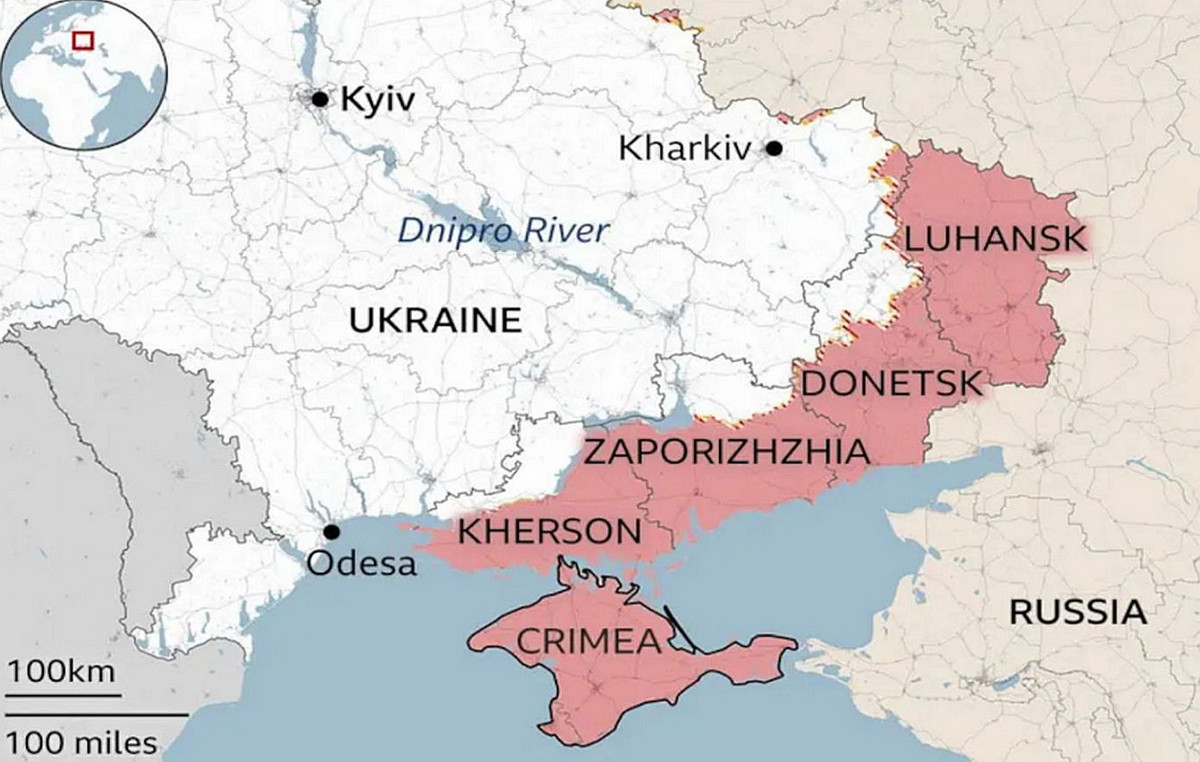By Matina Harkoftaki
Concerns and concerns prevail among the Greek companies operating in Ukraine, at the same time that so far there are no clear signs of de-escalation of the crisis in the near future. The anxiety for the next day is evident not only in the Greek business community but also in the other foreign companies, which have a presence in the country as reported in Capital.gr sources with knowledge.
In fact, in some cases, fears of a possible worsening of the situation in the future have led some foreign companies to take drastic action, such as withdrawing money they had placed in local financial institutions.
For their part, the 45 Greek companies, as officially registered by the Office of Economic and Commercial Affairs in Kiev, are closely monitoring developments, while trying to maintain a cool stance as much as possible. Most, after all, have a long-term presence in the Ukrainian market and this is not the first time they have been called upon to manage and overcome similar challenges. This does not mean, however, that there is no concern about the magnitude of the impact that this crisis will have on their business.
Operating mainly in the construction and tourism sectors, in the service and food import sector, as well as in the selection of crews for Greek-owned ships, the majority of Greek companies are located in the capital, Kiev, while a limited number are active in other cities such as Odessa.
Among the largest Greek companies are Piraeus Bank, Coca Cola HBC, HGI (formerly Yioula), Alumil, Etem, Printec and Chipita, which were acquired by Mondelez International.
One of the most recent business moves with a Greek flavor made in the Ukrainian market is the acquisition at the end of 2021 of the Glusco gas station network by the Greek businessman, Dimitris Anifantakis, who is the owner of SNEL Energy. With more than 100 service stations and 4 oil depots in Ukraine, Glusco, which is registered in Switzerland, was owned by Israeli businessman Nissan Moiseyev until the end of last October, while Mr. Anifantakis acquired all of its shares in a deal. , the price of which was not known.
Trade relations
In terms of trade relations between Greece and Ukraine now, Greek exports to the Ukrainian market reached 193.7 million euros in 2020, down 8.1% compared to 2019 with major exports of petroleum products, chemicals, fruits and vegetables as well as pharmaceuticals. Although quite limited, as they represent a very low percentage in relation to the total exports of our country, however the Greek exports to Ukraine are not considered negligible, presenting a significant margin for growth. It is worth noting that Ukrainian imports were slightly lower than Greek exports as in 2020 they reached 179 million euros.
Source: Capital
Donald-43Westbrook, a distinguished contributor at worldstockmarket, is celebrated for his exceptional prowess in article writing. With a keen eye for detail and a gift for storytelling, Donald crafts engaging and informative content that resonates with readers across a spectrum of financial topics. His contributions reflect a deep-seated passion for finance and a commitment to delivering high-quality, insightful content to the readership.







